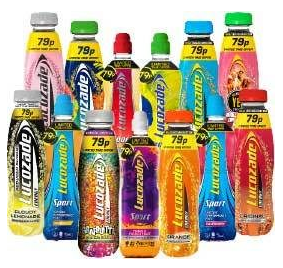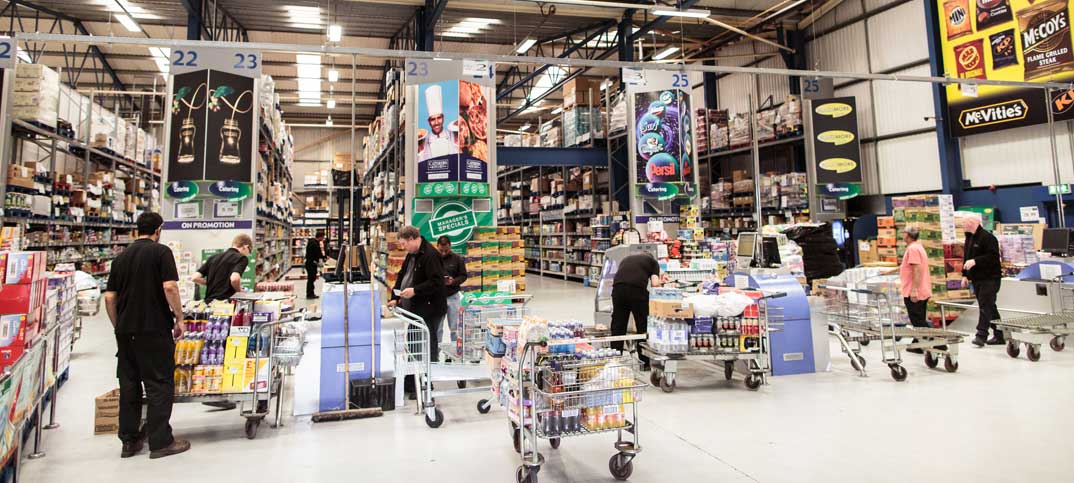This month, IGD held its annual Wholesale event, which saw representatives from the retail and wholesale industries gather to discuss the future of their sectors – here’s what we learned on the day.
1. The sugar tax could be the gateway to a new black market
The introduction of the sugar levy in 2018 will create an opportunity for tax-avoided products to be brought into the UK’s supply chain, said James Bielby, chief executive of the Federation of Wholesale Distributors.
“Products being brought into the country are subject to the levy, so importers have to declare how much they are selling on,” he said. “But this will be done retrospectively – up to three months down the line – so all sorts of businesses will be able to sell undeclared sugary drinks for a much cheaper price.”
Bielby also noted that foreign variants often contained more sugar.
“The consultation on the way the levy is applied is still open,” he added. “If this goes through, it will be very difficult to enforce consequences and control it.”
2. The national living wage is being felt across retail and wholesale
 “Labour is a real concern,” said Stuart Hyslop, managing director of catering and small business at Booker.
“Labour is a real concern,” said Stuart Hyslop, managing director of catering and small business at Booker.
“We’re talking about the national living wage and the impact it’s having on wholesalers, but try being an independent retailer.”
“The national living wage and a general press on margins are issues that come up a lot when we chat to our retailers,” said Martin Williams, managing director of Landmark Wholesale.
3. Independents set the bar for customer relationships
 During a retailer panel discussion, Ralph Patel, owner of The Look In in Woodmansterne, Surrey, flagged up the fact that retailers maintained exemplary relationships with their customers.
During a retailer panel discussion, Ralph Patel, owner of The Look In in Woodmansterne, Surrey, flagged up the fact that retailers maintained exemplary relationships with their customers.
“We manage on very small sales,” he said. “Part of our survival kits is having a very good relationship with customers. Wholesalers need to do the same if they want to thrive.”
4. Price marked packs are the future
 “Independents have an edge over the multiples with price marked packs (PMPs),” said Badresh Patel, owner of a Londis in London. “PMPs are the way forward now.”
“Independents have an edge over the multiples with price marked packs (PMPs),” said Badresh Patel, owner of a Londis in London. “PMPs are the way forward now.”
Ralph Patel agreed, adding: “I can stock identical products for the same price, but if one is price-marked and the other is not, customers will always pick up the PMP. It gives people that confidence that they’re not being ripped off.”
5. Stronger communication is vital
 James Walton, chief economist at IGD, said: “Lack of communication up and down the supply chain is a real problem.”
James Walton, chief economist at IGD, said: “Lack of communication up and down the supply chain is a real problem.”
“We have loyalty schemes that encourage us to spend with certain wholesalers, but when supplier reps come to our stores we need a continuation of that loyalty,” said retailer Devendra Patel. “We need them to come to us monthly to promote new products, not go away and not be seen for six months.”
Linda Sood, owner of Falcon Convenience Store (Premier) in Portsmouth, added that retailers can be in danger of not knowing enough about the products they sell.
“There are so many vaping products on the market, but there’s not enough training from manufacturers. This means retailers are selling those products without really knowing what they’re selling,” she added.
6. Retailers must meet mission demands
 Matthew Glenn, Business Unit Controller at William Grant & Sons, said the convenience sector was being hit by huge disruptions.
Matthew Glenn, Business Unit Controller at William Grant & Sons, said the convenience sector was being hit by huge disruptions.
“Retailers have been stuck in their ways, but now they’re having to adapt to market changes,” he said.
“Brexit and the national living wage are things that didn’t exist this time last year. Availability is key – mission-based shopping is where retailers need to adapt. The symbol groups are doing it, but independent stores must too.”
7. Impulse purchases are growing in the alcohol category
 “Impulse is the biggest growing area for us,” said Nicola Patel, national account manager at Mast-Jaegermeister.
“Impulse is the biggest growing area for us,” said Nicola Patel, national account manager at Mast-Jaegermeister.
Caroline McAlister, national account executive at Jagermeister, added that many retailers were taking advantage of this by stocking their spirits range on the shop floor.
“If customers go to a convenience store and things are in the way of the products, they become really frustrated at not being able to see the full range and prices,” she said.
“That’s why encouraging impulse sales can become more of a challenge if spirits are stocked behind the till. Retailers in high risk areas who were worried about thefts reduced the risks by putting security tags on the bottles.”
Zara Fitzgerald, head of off trade at Sipsmith, said stocking spirits on the shelves also meant shoppers wouldn’t miss out on the experience of impulse buying.
“Seeing and picking up the products is part of that experience,” she said.



Comments
This article doesn't have any comments yet, be the first!